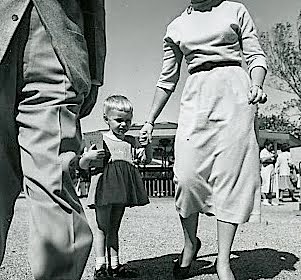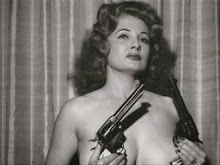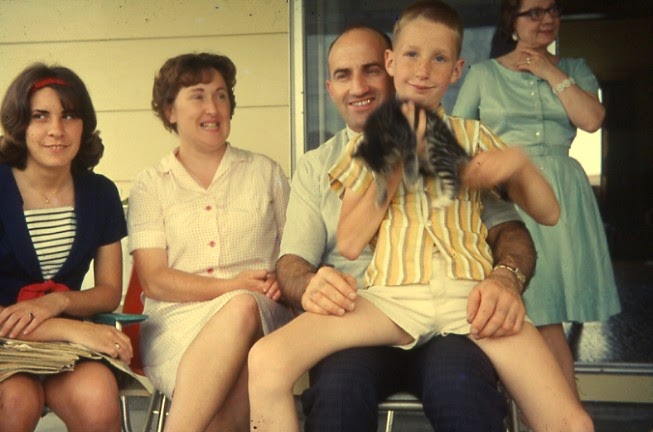 Some quick, pre-class feedback on the last round of papers for those waiting nervously.
Some quick, pre-class feedback on the last round of papers for those waiting nervously.As a whole it was a stronger group of papers than the first round. Students who were having trouble with development and organization improved in those areas. And pretty much across the board, everyone attempted analyses of the kind required by a non-conventional narrative like H with detailed attention given to the narrative's latent information and assumptions.
In no particular order, these are some individual bits of insight and interpretation that I thought were especially solid and useful. You may recognize some (in some cases many) of your own points here:
1) The "bicycle incident" is probably the most revealing example of the limitations of the "authorities" (parents, doctor, camp directors and counselors) point of view. From their angle, Benjamin is irrational and violent, a potential threat to others. From Benjamin's angle, the context of the incident is explained as well as Benjamin's remorse and realization that he acted wrongly. Here we also see a pattern consistently reproduced: Benjamin's actions are seen in isolation and not in context by those in authority over him.
2) Mr. and Mrs. Sherman are almost diametrical opposites: distant vs. too involved, cold vs. too emotional, one insisting that Benjamin "grow up," the other desiring that he remain her little boy. They are similar however in their lack of any sense of responsibility for Benjamin's "problems."
3) As two students pointed out, Mr. Sherman's never writing to Benjamin directly is symbolic of his inability to address the situation, i.e. his letters are not "addressed" to the right person. One paper specifically compared Mr. Sherman with the absent Master in The Turn of the Screw, another figure who avoided communication by letters and whose absence powerfully influenced the actions of the other characters. Another paper brought in Freud's essay on the "fort/da" game as a way to make sense of Elliot and Elliottown as a means to deal with this parental absence---like that game, the Elliottown fantasy gave Benjamin a sense of control and a way to, as one student said, "write his own story," a story much different than his father's.
4) Benjamin's progress at camp is seemingly invisible to his parents. Can his parents even "see" Benjamin or only their own desires for him? Several students noticed that everything positive about his camp experience is overlooked by his parents, in particular his friendship with Amelia. Since they expect him to make friends with other boys, they are oblivious to the one possible friend he does make.
5) Elliottown is a compensatory fantasy. One of the things it provides that is glaringly missing from Benjamin's "real life" is trust. He cannot trust his parents: after telling him he can decide if Elliot stays at camp, they take her away anyway, Mr. Sherman listens in surreptitiously on Benjamin's phone calls with his mother, Benjamin agrees to go into the hospital, but obviously hasn't had the conditions of his release made clear to him, and so forth. One paper pointed out how Elliottown provides Benjamin with a sense of importance and meaning: he is a capable emissary from another world, sent to observe and make conclusions about Earth, as well as being some kind of "expert" able to help solve various Elliottown problems. Within the Elliottown world, Benjamin has status as a competent leader and advisor. Another paper pointed out how important Elliot was to helping Benjamin construct an independent identity, independent of his parents and their version of a "perfect son." And many students made the point that most of the adults seem oblivious to Benjamin's sheer creativity. Whatever the ultimate positive/negative effects are, Benjamin's fantasies are deeply creative and maybe this was lost even on his doctor, a man who could help Benjamin utilize his creative play in a more positive (or socially acceptable) direction. Although, interestingly, opinion differed on the extent to which students felt Dyson handled Benjamin's case well (see 10a below).
6) Dave the counselor's perception of Benjamin is an interesting point of contrast with other authority figures. Everyone else sees Benjamin as the problem, but for Dave he is only a problem, and not the worst one at that (i.e., not as bad as the kid who continually poops his pants, or Mike "Motherfucker.") One paper argued that Dave's "matter of fact" handling of Benjamin shows how Benjamin might have acted differently in a different family. Another paper made the astute observation that it was Dave's letter about the camp reunion, and not Dr. Dyson's treatment, that most seemed to spur Benjamin's efforts to leave the hospital. Still another paper argued for seeing the camp directors as slightly different from the other "authority figures" in the first section. This paper appreciated the wise decision they made to not stigmatize Benjamin by disclosing his diagnosis to counselors and other campers, a decision which seemed to create the circumstances in which Benjamin was able to "thrive" relative to his existence pre-camp.
7) Several papers pointed out that Dave seems like a surrogate Father/role model for Benjamin. Interestingly, he is exactly the kind of "average guy" mainstream male that Mr. Sherman wishes Benjamin was. And because Benjamin looks up to him, we see Benjamin is not completely outside of even as limited a view of "normal" as his father's.
8) If being distant, lost in one's own world, and unable to communicate with others are the criteria for being "sick," then isn't Mr. Sherman as sick as Benjamin? Most papers mentioned that nearly all the initial letters encourage the reader to see Benjamin as "sick," but it is only when one views all the letters as a whole that one starts to question the validity of their individual diagnosis. Following through on our class discussions, some students argued that the Sherman family is the major "unsaid" of the text: it is only through a patient (and, of course, partial) reconstruction of the relations between Jeffery and Peggy and their relations to both Benjamin and Hannah that the reader can begin to make sense of Elliot and Benjamin's need for her.
9) All the authorities see "the problem" as a strictly individual rather than collective one. That is, "the problem" is limited to Benjamin and his behavior, rather than reading Benjamin's behavior as a manifest symptom of a latent context: his family situation. Thus the "cure" is limited to changing Benjamin and not his parents as well (or maybe even society at large?).
10) Several students drew out comparisons between H and The Turn of the Screw as narratives. In particular, these students were interested in the way both novels seemed to them to lack a complete narrative closure, thus placing the reader in an unusual position. These papers were interested in the effects of narratives which don't adhere to traditional formal expectations: a clear beginning, middle and end, lots of narrative exposition to "explain" things to the reader, and a tight closure where a single and clear authoritative meaning is reached by the end. Instead, these two works seem to share a similar effort to engage the reader in the process of reaching final conclusions, conclusions which could play out in several directions and therefore don't really seem to be "final."
10a) Some very interesting readings of the end of the novel were produced. Clearly, it is difficult to decide whether or not the ending is some kind of triumph or failure. How do we make sense of the space Benjamin is in by the novel's end? One student argued, "The last page of the novel is the result of Jeffery and Peggy's hard work. Beat down, tired and medicated, Benjamin gives up the most special gift he had, which is his creativeness....it is tragic because Benjamin did not outgrow Elliot but was instead forced to do so." Most students who took this line felt Dyson was complicit in this tragic loss. However, one paper made a plea to understand the position of Dr. Dyson differently: "Eventually, the place that gave him value is gone. His relationship with Elliot ends as well. Both are huge leaps for a special child like Benjamin. Through therapy sessions with Dr. Dyson, and with his new found confidence, it looks as if he found his own sense of self...The last letter from Dr. Dyson was most disturbing to me. After his parent's request to have Benjamin back home...the doctor's response made me feel heartbroken for Benjamin's fate. ...(A)fter I read his last letter my heart dropped at the idea that he will be left back in his parents care, especially without the education and experience of Dr. Dyson. The doctor's letter seemed as if he felt defeated. It was the first time I felt sympathetic to anyone else other than Benjamin."


























































No comments:
Post a Comment